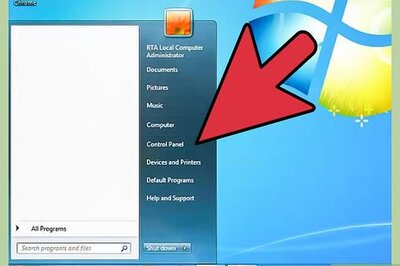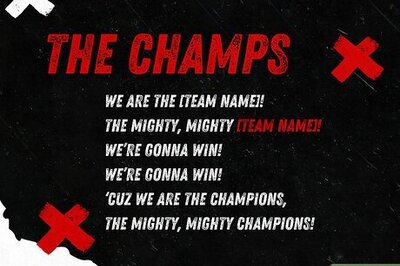
views
BANGALORE: One month from now, two scientists from the Indian Institute of Sciences (IISc), Bangalore, will come up with hygienic, scientific and non-hazardous methods of recovering harmful metals from e-waste.Dr J R Mudakavi, Department of Chemical Engineering, and Dr S Subramanian from the Department of Material Sciences at IISc are working on the project for the past two-and-a-half-years. The project is funded by the Department of Science and Technology, Government of India and Karnataka State Council for Science and Technology (KSCST).Speaking to Express about their project, Dr Mudakavi said, “We are specifically working on mobile phones and computer batteries which contain valuable and corrosive metals like lithium (a silver-white metal), gold and copper. The e-waste is not being disposed scientifically. In order to recover lithium and gold from these batteries, the backyard processors are dissolving and treating them using cyanide.” “About 30-35 per cent of these batteries contain lithium, which is a highly flammable metal. Moreover, since India does not manufacture lithium, its reuse is valuable. As a major country for cosnuming lithium batteries, the quantities of e-waste corresponding to lithium cells is quite alarming” he added. Mudakavi said, “Quite often, in our research work, we have noticed that the batteries are as good as new or only slightly used which is a hazard if not handled carefully. Major problems of lithium ion batteries are related to explosion of the electronic devices.” “Recent instances of mobile phone explosions in Chennai, Bihar, Assam, Kashmir and also from countries like Kenya and Cambodia, leading to death and leaving some of them with facial injuries and burns are few examples left in front of us,” he said.As per the statistics obtained from the Karnataka State Pollution Control Board (KSPCB), Bangalore generates about 1,000 metric tonnes of e-waste (which includes computers, cell phones, refrigerators, washing machines, microwave ovens and batteries) every month and the absence of a specific legislation to regulate the handling and disposal of e-waste has become a major hurdle to KSPCB.



















Comments
0 comment